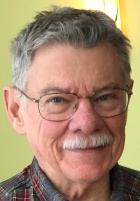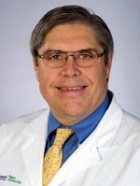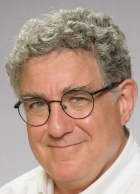Classnotes - 1970s
Elliott Brender, MD ’70, FACS, writes: I am now retired after a successful career in private practice general surgery. I am also a clinical professor of surgery at the University of California Irvine. Since 2008 I have been doing volunteer missions to Cambodia, where I bring donations, teach surgery, do cases, attend clinic and present at international conferences. I completed my fifth mission in January 2016. You can see pictures and read my travelogue at www.201601missiontocambodia.shutterfly.com. I am now working with the American College of Surgeons, the American Board of Surgery, and the Residency Review Committee to establish a rotating surgical residency program in Cambodia. It would bring state-of-the-art surgery to Cambodia, helping the Cambodian people and surgeons while providing case material and experience for American residents. From the above link, there are links to my other missions.
Robert Ungerer, MD '70 writes, "After serving in the Navy as an orthopaedic surgeon in Yokosuka, Japan, I settled in Jamestown, NY to practice for 32 years. My wife of 42 years and I have four daughters who all found jobs, married, and between them produced 15 grandchildren. Since retirement I have served as a volunteer lacrosse coach at Jamestown High School for four years, contributed a 700 word article about science and nature every other week for six years to our local newspaper, ""The Post-Journal", and this year cease performing independent orthopaedic exams which were done several days a month.
This year at the reunion I missed meeting up with my medical school cadaver colleagues, Dennis DuBois, Jack Secrist, and I believe Dennis Bordan. As a first year student, Dennis told me he was studying about bradykinins with a professor. At the time I thought why and what are they only to realize later during my career I prescribed nonsteroidal anti-inflammatory drugs to retard inflammatory products like bradykinins and prostaglandins. Dennis was a motorcycle driver and because of this activity did me a big favor during medial school. I purchased a small 75cc motorcycle, which today would be less than a motor scooter, so Dennis drove his car to the motor cycle license examination site to transport the examiner who followed me on the cycle. I forgot to wear the required goggles but Dennis in his quick thinking told the examiner a fib that I had a new pair of goggles in my pocket. I passed the test thanks to the excuse made up by Dennis.
Brendan Thomson and I sat next to each other in neuroanatomy. After a quiz, Dr Brody came around to report our results. First, he addressed Dr Thomson, your could do better, are you working with Dr Ungerer next to you, and he acknowledged, "yes". Next, he noticed that my quiz results could also be better, so maybe sitting in the back of the classroom we missed something or we were the "blind leading the blind". Before Lent, Brendan asked me if I was giving something this year, I had not given it much thought. He said he was giving up sex. "Wow", I said that is some sacrifice, but for me that was easy I had no partner.
I have never seen Bob Gale since graduation, but I have kept up with his exploits through my friend, Dick Yorke, who today remains a good friend of Bob's since the two graduated from Hobart College together. Bob became famous after being asked to treat victims of the Chernobyl nuclear reactor explosion in 1986 in Ukraine. As a hematologist he supervised bone marrow transplants apparently saving many patients. My friend Dick tells me Bob Gale has numerous honors including membership in academic societies in Russia and China.
During the reunion Nancy Lynn Eckhert told me my father was her high school physics teacher. I forgot to tell her that I as grateful her brother and father were also my teachers in general surgery during a rotation through the Deaconess Hospital.
During our reunion were offered the chance to relate how our medical school influenced us. I had no answer at the time, but now realize the school policy of "pass-fail" was beneficial and appreciated by me. This grading eliminated competition between classmates and fostered the chance to help each other study. I think friendships formed easier when we helped each other if needed. I know all my classmates were highly motivated to learn and exerted maximum effort to learn and apply that knowledge to treating patients.
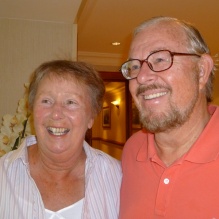
My friend to whom I donated a kidney
Terence Clark, MD ’71, president of Anchor Radiology, PA, writes: "I have practiced diagnostic radiology in the upstate of South Carolina since 1977. I’m semi-retired and live in a small university town (Clemson) on a lake in the foothills of the Blue Ridge Mts. I serve on 3 boards, including a local free clinic. In 2012, I donated a kidney to a close friend in the UK (transplant took place in Coventry, UK). I have two children, one practicing law locally. I’ve biked every major river in Europe as well as Vietnam, Cambodia and Thailand. Enjoy vintage racing with my own cars—a Ferrari or two. Play tennis 5 times a week! Specialize in making opponents look good! But getting better!?" Favorite memories: Surgical lab; OB at Sisters; physicals at Deaconess. Elected to AOA. Graduation Day.
Thomas Di Sessa, MD '71 writes, "I work as a Professor Emeritus at the University of Kentucky. On November 11th, 2017, I completed my 50th humanitarian mission as a pediatric cardiologist. My first mission was in 1995. At that time I traveled to Jamaica with the International Children’s Heart Association as the pediatric cardiologist responsible for evaluating children for heart surgery. Since then I have traveled to 10 countries doing humanitarian work. Using cardiac ultrasound and cardiac cauterization, I have prepared at least 950 children for surgery, evaluated approximately 2000 children, and performed life saving interventions in the catheterization laboratory on a number of infants and children."
Paul Kruger, MD '72 writes, "I started a hospital-based prenatal clinic in Watertown, NY, which met the increased need for care caused by the activation of the 10th Division at Fort Drum from 1988 to 2001. My private practice group attended the deliveries.
I was Ob-Gyn department chairman in Watertown for 3 years in the 1990s when we achieved a cesarean rate under 15%. This achievement was due to improved coverage by in house obstetricians, midwives, anesthesia personnel and not to my leadership, but I was still proud.
On a more serious note, I did quality assurance work which led to two physicians loosing their medical licenses. I really wished that I could have rehabilitated those people. I expect that this is still a type of problem that some new physicians will have to face.
During my second year I was in a small class with Dr Samuel Sanes. He asked a fairly simple question and said that he would take whoever answered correctly to lunch at the Park Lane restaurant on Gates Circle. Maybe my classmates didn't want to lose time or maybe they knew that I had lost my father during my first semester but no one else raised their hand. Dr Sanes was a great teacher and an inspiration. Started a hospital based prenatal clinic in Watertown, NY, which met the increased need for care caused by the activation of the 10th Division at Fort Drum from 1988 to 2001. My private practice group attended the deliveries.
Actually, I had to do active Army Reserve duty during my first two years. It would have been better if this could have been postponed."
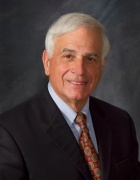
Thomas A. Lombardo, Jr, MD ’73, a practicing orthopedic surgeon at Northtowns Orthopedics, was installed as president of the Erie County Medical Society on May 7, 2013.
Lombardo received his undergraduate degree in 1969 from the College of Holy Cross in Worcester, MA, and his medical degree from UB in 1973. His postgraduate training included a two-year surgical residency at Millard Fillmore Hospital and a four-year orthopedics residency at UB.
Lombardo began in private practice in 1979 and became a board certified orthopedic surgeon in 1980. Over the years, he has held a variety of elected positions, including president of the Western New York Orthopaedic Society. He also was a long-time chair of the Department of Orthopedic Surgery at Millard Fillmore Hospital and served on the board of directors for the New York State Society of Orthopaedic Surgeons.
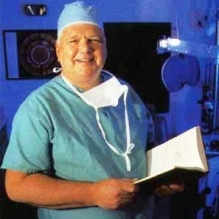
Arthur "Art" W. Mruczek, Sr, MD ’73, is an Ophthalmic Surgeon who retired from his practice at the Lake Plains Eye Center, Medina NY in 1999. Mruczek received his undergraduate degree in 1969 from Syracuse University (BA in Chemistry), and his medical degree from UB in 1973. His postgraduate training included a ECMC Internship followed by a three-year Ophthalmological Residency at SUNY-UB.
Mruczek built the Lake Plains Eye Center in 1975 and became the first ophthalmologist in Orleans County. NY. Later as a Board-certified Fellow in 1979 he became a member of the Oculoplastic Fellowship Society. He was proud to be the Ophthalmic Surgery Chair at Medina Memorial. Over the years, he has held a variety of elected positions, including Staff President Medina Memorial Hospital 2000, President Orleans County Med Soc2004, Eighth District President. He was honored as Physician of the Year by MMH. Art enjoyed working with residents in training as a long-time clinical volunteer of the Eye Department at ECMC. Art was founder of "Eyes over Rzeszow Poland" and taught eye surgery for decades in Rzeszow Poland, Buffalo Sister city, his heritage. He was invited to have an Audience with Pope John Paul II after his Polish efforts. An Eagle Scout, he received commendation for his Boy Scout Activities. He was inducted into the Pembroke HS Hall of Fame and is CEO of Dollars for Scholars, Pembroke NY. He remains active in the Lions Club.
Peter Whittredge, MD, '74
Specialty: Cardiology
Medical residency: Boston City Hospital, 1974–76
Cardiology fellowship: Tufts New England Medical Center, 1977–79
Resides in Suffield, Conn.
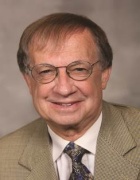
Bruce H. Thiers, MD, '74
Having seen enough snow during my years in Buffalo, I have lived almost my entire professional career in Charleston, SC. I am now Distinguished Professor and Chairman Emeritus of the Department of Dermatology and Dermatologic Surgery at the Medical University of South Carolina (MUSC).
I love my job and still work full time. I joined the faculty of the Department of Dermatology in Buffalo in 1979 and later that year relocated with two other members of the Department to found the Department of Dermatology at MUSC. Since then I have been involved in a number of academic activities. I was associate editor of the Journal of the American Academy of Dermatology from 1988-98 and served as its chief editor from 2008-18. I am consulting editor of Dermatologic Clinics and a former editor of the Year Book of Dermatology and Dermatologic Surgery. I was President of the American Academy of Dermatology from 2020-21, having previously served as Vice President and as a member of the Board of Directors of that organization. I also served on the Board of Directors of the Association of Professors of Dermatology, and am currently on the Board of Directors of the European Academy of Dermatology and Venereology.
My area of expertise is dermatologic therapeutics with a special interest in psoriasis and complex medical dermatology. OP Jones- terrorized us.
Bernard Alpert, MD, '74
Specialty: Plastic Surgery
What would you tell your younger self while in school?
"Study hard…medical school is wonderful"
Career and Personal Highlights:
In 2001, as President of The Medical Board of California, I proposed creation of a program to improve access and care for the underserved of our state by providing $100,000 of medical school loan relief to graduating residents in Primary Care Specialties committing to jobs at understaffed federal facilities in specifically identified areas for three years. A law was passed creating the program, which began in 2003, the first of its kind. It has been oversubscribed since inception, existing today, having provided over 60 million dollars in loan relief to over 600 graduates.
In April, 2003, I was the first civilian US physician to enter Iraq as part of the humanitarian relief effort, with International Medical Corps. I returned six times over the next seven years, organizing with two US colleagues a reintegration effort for Iraqi physicians with the rest of the medical world, from which they had been isolated. We hosted six Iraqi medicine leaders at 17 major US medical centers between November 2003 - March 2004, including a meeting at the White House with the President, Secretary Rice, Senate majority leader Frist (a cardiac surgeon), and Surgeon General Carmona. The State Dept. subsequently assumed supervision of the reeducation effort for the physicians of Iraq.
Jules Constant, and another Cardiologist (last name Black), John Border, “Bud” Schenk, Vahram Bakamjian, and Chief of Surgery at Buffalo General, whose name, embarrassingly, I don’t recall.
Favorite Faculty and Favorite Memories:
Trauma and ICU rotations, dog surgery labs, hanging around with great friends eg. Laglia, Smith, Pietraszek, Wierzbiniac, Oufierro, Portale, Gustafson, Furst…and many more, Sabres games, Bills games, working night shifts on truck loading docks for Smitty’s dad…awesome guy! Tempted to say winters, but as I grew up in Potsdam, New York, believe it or not, Buffalo wasn’t quite as cold
Student Affiliations: 3rd year AOA
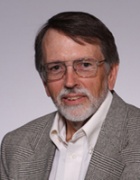
Thomas C. Rosenthal, MD, '75, past chair of Family Medicine at the Jacobs School of Medicine and Biomedical Sciences, has published another book covering the medical history of Buffalo. "Cyrenius Chapin, Buffalo’s First Physician and War of 1812 Hero" (SUNY Press, 2025), is a nonfiction account of Dr. Chapin's arrival in Buffalo in 1803 with his wife Sylvia and their involvement in nearly every project in the WNY frontier. He brought little more than a caring attitude and infuriating gall and was a renegade militia officer who fired a final cannonball before the British burned Buffalo in 1813. In 1821, he started the Erie County Medical Society, serving has its first president. He died in 1838 after his third attempt to 'liberate' Canada from British rule.
What would you tell your younger self while in school?
"All the effort was worth it."
Career and Personal Highlights:
I have practiced in small towns and urban centers in my career, enjoying the people I met and cared for along the way. From 1993 to 2013, I had the privilege of serving as the chair of UB's Department of Family Medicine. My other activities included founding the New York State AHEC system, editing the Journal of Rural Health, serving on several legislative councils and publishing over 80 peer reviewed papers and a textbook of geriatrics. In retirement I have published two books. The first titled, "Bloodletting and Germs" was based on the career of an East Aurora village doctor who practiced medicine during the nineteenth century enlightenment. The second, "Cyrenius Chapin: Buffalo's First Physician and War of 1812 Hero."
Favorite Faculty and Favorite Memories:
When we got to the hospital wards in our third year the whole world of clinical medicine and direct patient care opened up. I have learned a lot of practical science from professors, and I have learned about life from patients.
Student Affiliations: Family Medicine Interest Group
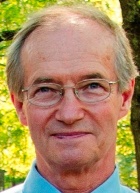
David Sokal, MD '76 writes, "After a pediatric residency, I went to the Centers for Disease Control in Atlanta and took an overseas assignment in Burkina Faso, formerly known as Upper Volta, in the French-speaking region of West Africa. I worked in Burkina Faso for five years, and after returning to the US in 1987, I joined Family Health International (FHI 360) in Durham, NC.
At FHI 360 for 25 years, I worked on contraceptive research and HIV prevention, with a focus on men’s health. I spent about 10 years researching different vasectomy techniques, and was the only non-surgeon on a committee of the American Urological Association that prepared the first US Guidelines on vasectomy procedures.
With respect to HIV prevention, I was co-leader of a team that obtained FDA and WHO clearance of a device that simplifies adult male circumcisions. Previous research had shown that circumcised men are less likely to become HIV infected.
After retiring in 2012, I co-founded the Male Contraceptive Initiative (MCI), a nonprofit that is dedicated to funding the development of new, non-hormonal, reliable and reversible contraceptive methods for men, e.g., a male pill. More recently, I have been volunteering with the Triangle Chapter of Citizens’ Climate Lobby (CCL).
I have two sons and one stepson, all married, and one 19 year-old grandson.
In Gross Anatomy we called our body "Roscoe."
In my peds rotation, I diagnosed a case of measles in a teenage girl who was admitted with a diagnosis of "allergic reaction to ampicillin." The senior resident dismissed my diagnosis. I ordered a urinalysis, with a request to look for multinucleated giant cells, which are seen in the urine of kids with measles. The pathologist came up to the floor to give us the result, and the attending agreed with my diagnosis. The teenager was immediately moved up to the infectious disease ward."
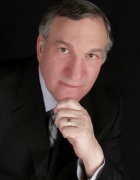
Stephen Lazoritz, MD ’76, has been appointed medical director of Arbor Health Plan, a Medicaid managed care organization operating in 83 rural Nebraska counties.
A pediatrician, health care executive, author, speaker and advocate for the health and welfare of children, Lazoritz also holds an appointment as a clinical professor in the Department of Psychiatry at Creighton University School of Medicine.
Prior to joining Arbor Health Plan, he served as the chief medical officer for the Omaha Military Entrance Processing Station, United States Military Entrance Processing Command, and prior to that, as vice president of medical affairs at Children’s Hospital and Medical Center in Omaha.
Arbor Health Plan is part of the AmeriHealth Caritas Family of Companies, a majority-owned subsidiary of Independence Blue Cross; Blue Cross Blue Shield of Michigan holds a minority interest.
Donald George, MD '76 writes, "Stepped down after 34 years as Chief of Pediatric GI in first San Antonio and then Jacksonville. Now working part time and enjoying time with my wife of 44 years, 4 children and 2 grandchildren. Still get up to the farm in North Java frequently.
Memories: Cardiology with Jules Constant.
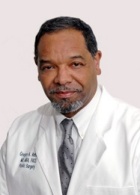
Gregory A. Antoine, MD ’76, treated many of the injured survivors of the Boston Marathon bombing. At the time, he was chief of plastic and reconstructive surgery at Boston University School of Medicine.
Today Antoine is chief of staff at the Fayetteville Veterans Affairs Medical Center in Fayetteville, NC.
A native of Boston, Antoine served in U.S. Army for over 20 years, in Desert Storm and Operation Restore Hope (in Somalia) and has had significant experience with combat trauma.
The emergency room the day of the bombing looked like a combat scene, he says. “It was controlled chaos. We were triaging patients and sent about eight or ten of them immediately to the operating rooms. We took some into the ambulatory portion of the OR, which you’re not supposed to do, but we made an exception because we needed the operating space.”
Most of the patients he saw had lower extremity injuries. “My first patient was the man who lost both his legs [Jeff Bauman],” he recalls. “I cleaned up his injuries and stabilized him. Another man was in shock, with significant wounds to both legs. I also saw a woman who’d suffered a shrapnel injury to the back of her knee. Luckily, the artery was not transected; otherwise, she could have bled to death. She had significant nerve injury, and I went in some days later to repair her nerves and close her wound.”
Antoine says many of the hospital staff were unaccustomed to what they saw—the severity of the injuries and the volume of patients. “Many were in shock,” he says, explaining that counseling services were provided for them in the days following the attack.
Nedra Harrison, MD ’77, was voted by her medical colleagues as a Top Doc, as announced in the April 2013 issue of Phoenix Magazine which profiled the top rated doctors in the Phoenix/Scottsdale and surrounding areas.
Harrison also participated in a short video presentation, posted on the Phoenix Magazine website, that introduces the work she does with breast cancer patients.
A specialist in benign breast disease and breast cancer surgery, Harrison is affiliated with the Scottsdale Healthcare System. A former past president of the UB Medical Alumni Association, she has lived and practiced in Arizona for 14 years.
Ira L. Salom, MD ’77, has been appointed Medical Director of Metro Community Health Centers, a multi-site Federally Qualified Health Center in New York City. Open to all community members, MCHC has a long history of serving intellectually and developmentally disabled persons.
Salom trained in Internal Medicine at Metropolitan Hospital Center and the University of Minnesota, where he earned a MSc(Med), and in Gastroenterology at SUNY Buffalo. He earned a MSc at New York University’s Advanced Management Program for Clinicians. He is certified in Internal Medicine, Clinical Pharmacology and is a Certified Physician Executive. After 20 years of practice in New York City, he has for the last 15 years held positions as Chief of Service, Physician Advisor, and Chief Medical Officer at urban hospitals in New York and New Jersey and at rural hospitals of the US Indian Health Service. After retiring from federal service as CMO of Northern Navajo Medical Center, Shiprock, NM, he continues in full-time clinical practice and leadership roles, most recently at Metro Community.
He’s had a wide-ranging path in Medicine, saying: “My clinical career has encompassed practice in both the inner city and in areas where the nearest McDonald’s was 50 miles away – and the nearest Starbucks 190 miles!” He’s glad to be at home full-time with his wife and family after many years of ‘commuting’ between home and work Out West.
Ira is active in community affairs as an Auxiliary Member of the New York State Board of Medicine and founding director of Academy of Medical and Public Health Services, a not-for-profit organization providing clinical and social services to largely immigrant populations in Brooklyn, NY. Before working for the Indian Health Service as a civilian, he had been a Commander in the US Public Health Service reserve corps. He was honored as PHS Reserve Physician of the Year, having repeatedly volunteered to service in isolated, hardship posts, under austere conditions. He received the US Army Commendation Medal for Public Service, recognizing volunteer clinical support to Junior ROTC programs in New York, New Jersey and Connecticut.
Affiliation: I worked one summer as a 'diener' - autopsy assistant - for the Erie County Chief Medical Examiner and did a prosection for the next year's incoming anatomy class.
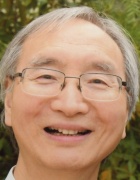
Don Liu, MD '77 writes, "[I am a] professor of ophthalmology at the University of Missouri, is a Guest of Honor at the American Academy of Ophthalmology annual meeting in New Orleans, November 11-15 2021. This is one of the highest honors bestowed on any ophthalmologist. Over the years, Dr. Liu has received many awards, honors, and recognitions from the Academy, professional societies, and teaching institutions. He is an elected member of the most prestigious American Ophthalmological Society. His recent textbook on laboratory mouse operations, a significant landmark in basic science research, has received glowing reviews and high praises.
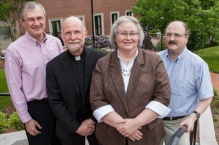
Rev. William E. Stempsey, SJ, MD ’78, PhD (pictured second from the left) has been promoted to the rank of professor in the Philosophy Department at the College of Holy Cross in Worcester, Massachusetts, where he has taught since 1996.
After earning his medical degree from UB, Stempsey completed residency training in pathology at University Hospital in Boston before joining the Jesuits in 1982. After ordination to the priesthood, he studied the philosophy and ethics of medicine at Georgetown University, where he earned his PhD in 1996. Stempsey has expertise in the concepts of health and disease, clinical reasoning, religion in bioethics, and ethical issues in death and dying, organ transplantation, and medical education. He is the author of Disease and Diagnosis: Value-Dependent Realism (Dordrecht, the Netherlands: Kluwer Academic Publishers, 1999) and is the editor of Elisha Bartlett’s Philosophy of Medicine (Dordrecht, the Netherlands: Springer, 2005). He serves on several ethics committees in Worcester, and also regularly celebrates liturgies on campus and in a local parish.
Kevin B. Kulick, MD ’76, a dermatologist in private practice and with Buffalo Medical Group for decades, died February 25, 2019 of pancreatic cancer. He was 68.
A native of Buffalo, Kulick earned his bachelor’s degree from Wesleyan University in Middletown, Conn., then attended medical school at UB, followed by two years of residency in family practice and a three-year residence in dermatology, both at UB. In his final year of residency at UB, he worked in a research lab studying lupus erythematosus.
Kulick then spent a year doing research with the Oklahoma Medical Research Foundation in Oklahoma City. He returned to Buffalo and spent the next two years researching at UB as a Dr. Henry C. and Bertha H. Buswell Fellow, a program that selects early-career medical doctors who will pursue careers as physician-scientists.
In 1981, Kulick began part-time private practice as a dermatologist and in 1984, he began a full-time private practice. He maintained an office on Delaware Avenue in the Town of Tonawanda for 25 years. In 2009, he joined Buffalo Medical Group, and he had offices on Essjay Road until he stopped practicing due to his diagnosis.
Kulick was certified by the American Board of Dermatology and a fellow in the American Academy of Dermatology.
Between 1983 and 1986, medical journals published four studies on lupus erythematosus he co-authored. In 2007, an article he co-authored on an unusual skin disease in a patient with lymphoma was published.
Kulick was president of Kadimah Academy in the late 1980s, president of the Jewish Federation of Buffalo from 2004 to 2006, and president of the Jewish Community Center of Greater Buffalo from 2007 to 2009. He was chair of the Young Leadership Program of the Jewish Federation of Buffalo and won the organization's Young Men’s Leadership Award in 1988.
In his spare time, Kulick was an avid gardener whose English-style perennial garden was a stop on the Amherst Garden Walk.
Kulick is survived his wife of 45 years, Rise Kulick; by a daughter, Abigail Gold; two sons, Benjamin and David Kulick; two sisters, Tracy Jacobowitz and Wynne Elizabeth Trinca; four grandchildren; and many cousins, nieces and nephews.
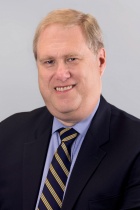
Avery K. Ellis, MD ’77, PhD ’79, MBA, senior associate dean for medical curriculum and associate professor of medicine and physiology, died suddenly on November 7, 2014 in Chicago, where he was attending a medical conference. He was 64.
Prior to assuming the medical curriculum deanship in 2008, Ellis directed UB’s cardiology fellowship and served as chief of staff at the VA Western New York Healthcare System.
“Teaching was one of Avery’s passions, and he was a master at it,” said David Milling, MD ’93, senior associate dean for student and academic affairs. “He had a critical impact on our medical students’ education — especially, but not limited to, the preclinical years. In the Office of Medical Education, he was an integral team member. His unique sense of humor was known to all of us, and we will miss him dearly.”
A Buffalo native, Ellis graduated from Cornell University and received his doctorate in physiology and medical degree from UB. He completed his residency and cardiology fellowship at Stanford University Hospital. In 1999, he received a master’s degree in business administration from Duke University.
Surviving Ellis are his wife of 40 years, the former Nitza Farhi; two sons, Robert A. and Noah D.; his mother, Mary Ann; a brother, Neil R.; and a sister, Laura.
Memorial gifts in his honor can be directed to: UB Foundation, Office of Medical Philanthropy and Alumni Engagement, 901 Kimball Tower, Buffalo, NY 14214. Please note that your gift is in honor of Dr. Avery Ellis.
